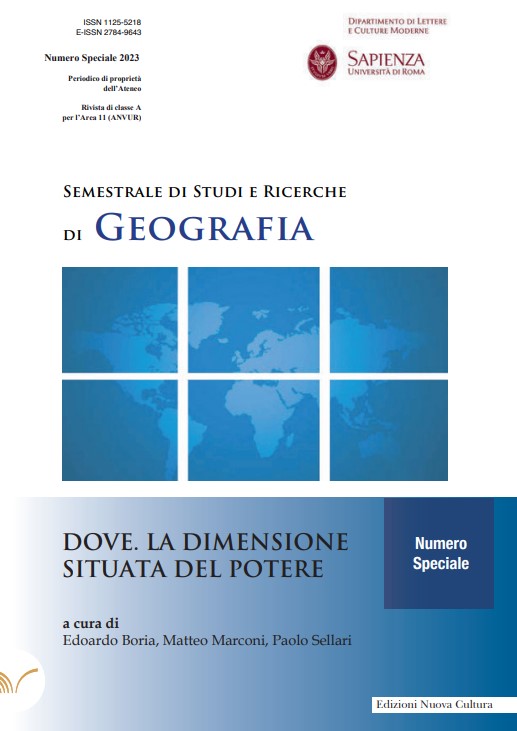Xylella emergency in Salento (Apulia): a geopolitical issue
DOI:
https://doi.org/10.13133/2784-9643/18469Keywords:
power, Xyella emergency, ApuliaAbstract
Salento has peculiar natural and human characteristics: mainly flat territory occupied by twenty million centuries-old olive trees which by law could not be uprooted; land fragmentation characterized by family economy and small business; aging demographic structures. These aspects represented an objective obstacle to the profitability of the land and a barrier to the free expansion of the market economy. In this context, the phenomenon of the Olive Quick Decline Syndrome (OQDS) appears in 2013. It is attributed to various causes and pathogens including Xylella fastidiosa (Xf), a quarantine bacterium. However, institutions focus only on Xf by adopting measures including felling of trees (infected and not), massive use of pesticides and a ban on planting Xf host plants. The proclaimed emergency - which has become permanent - still allows today, after ten years, to derogate from the constitutional principles and ordinary legislation for the protection of olive trees and the landscape, to "free" the soil and allocate it to new uses that would otherwise be precluded. It is evident that the "Xylella issue", far from being only agronomic and environmental, is a geopolitical issue.
Downloads
Published
Issue
Section
License
Copyright (c) 2024 Semestrale di studi e ricerche di geografia

This work is licensed under a Creative Commons Attribution 4.0 International License.
Gli autori che pubblicano su questa rivista accettano le seguenti condizioni:- Gli autori mantengono i diritti sulla loro opera e cedono alla rivista il diritto di prima pubblicazione dell'opera, contemporaneamente licenziata sotto una Licenza Creative Commons - Attribuzione che permette ad altri di condividere l'opera indicando la paternità intellettuale e la prima pubblicazione su questa rivista.
- Gli autori possono aderire ad altri accordi di licenza non esclusiva per la distribuzione della versione dell'opera pubblicata (es. depositarla in un archivio istituzionale o pubblicarla in una monografia), a patto di indicare che la prima pubblicazione è avvenuta su questa rivista.
- Gli autori possono diffondere la loro opera online (es. in repository istituzionali o nel loro sito web) prima e durante il processo di submission, poiché può portare a scambi produttivi e aumentare le citazioni dell'opera pubblicata (Vedi The Effect of Open Access).


